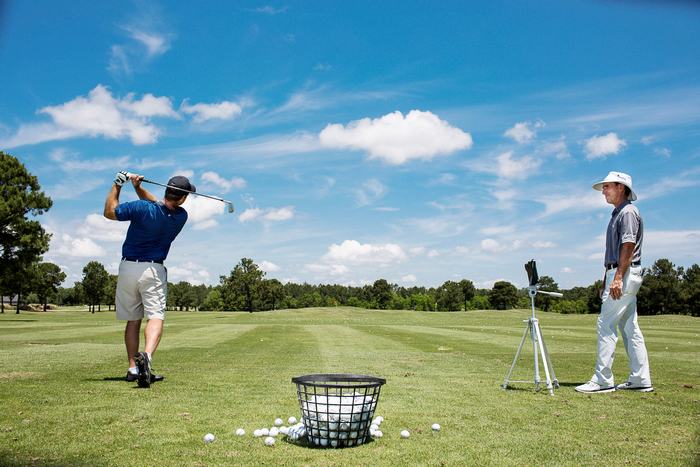Nowadays, everyone seems to think they can teach golf. So, “What makes a great golf coach?”
By ROBERT BICKNELL
Some days, when I am walking around some of the driving ranges in Vietnam, there seems to be more “coaches/instructors” than players. Nowadays, everyone seems to think they can teach golf, so the question is “What makes a great golf coach?”
Before I start, let me explain that I am not an “instructor” or a “coach.” I am a teacher and there is a world of difference.
Now without a doubt, the three most important qualities are:
1. 1. Education
Qualified teachers have a solid foundation of knowledge of the golf swing, impact dynamics and human physiology. Higher level teachers also have a background in golf swing physics, plane and spatial geometry and biomechanics.
However, that information is for the teacher to know and to impart to the student in small doses relevant to the task at hand. I see far too many teachers who have been educated beyond their intelligence tossing around big words to impress students and all it does is confuse them and that leads to a condition known as “Paralysis by analysis.”
In addition, there are far too many so-called “golf instructors” who paid a few thousand dollars for a teaching certificate, which included a weekend of instruction and a few handbooks. While that might be a good start to their education, it is only a beginning.
If they want to become good teachers they need to never stop learning.
- 2. Experience
There is no substitute for years of experience teaching golf. We all learn something new every day and with every new student comes a new challenge because no two people are alike – not even identical twins (which I discovered in the early 80s while teaching identical boys. Each had different strengths and weaknesses).
An experienced teacher can look at someone’s swing and immediately know (within five shots) what the player is doing wrong and how they can fix it. Anyone who always insists on totally rebuilding someone’s swing has limited knowledge and experience. They teach the only swing they know their own.
Oh, and by the way, there is a world of difference between someone who claims “10 years of experience” when, in actuality, its one year’s experience 10 times and, unfortunately, the golf teaching industry is full of people like this.
- 3. Ability to Communicate
Even the most educated teachers are next to useless if they cannot get their student to understand what they want them to do and more importantly, WHY.
It’s not really a matter of language, but more of attitude. You’d be surprised how many “so-called” golf instructors try to impress their students by using impressive sounding words and phrases when simple words or phrases, or a physical demonstration would be more than sufficient.
If a student doesn’t understand why they need to do something a certain way, it will be very difficult for them to do it.
NOTE: If you’re a beginner student or on more than a single handicap and your instructor starts tossing around phrases such as “co-efficient of restitution”, my advice is for you to run as fast as you can for the exit. Technical aspects of ball flight and impact dynamics are OK for a highly skilled player looking to become one of the best in the world, but are hardly applicable for a beginner.
Now, with all that said, I need to give you some really bad news…
According to research provided by the USGA’s Golf Handicap & Information Network (GHIN), the average male player’s handicap today is ONLY two strokes lower than it was in the early 1990s.
What makes matters worse is this decrease coincides with a remarkable decade of equipment innovation, not instruction.
Today, we have Titanium heads, graphite shafts, supercharged golf balls, game-improvement irons, oversized putters, $100 million per year in research and development by club manufacturers, high speed digital video, Trackman, biomechanics and a gazillion golf instruction books and videos available.
Players today are in better physical shape, the equipment is light years ahead of the 1990s and yet handicaps have dropped only two strokes over the last 25 years.
We have a gazillion golf instructors roaming the world, a hundred thousand YouTube videos of even more ambitions golf instructors touting their “secret” to help you improve and yet most people improved simply because of oversize putters rather than better instruction.
I attribute this to two factors: Far too many golf instructors are unqualified and, secondly, students don’t practice what they are taught.
When I see people who have finished a lesson with their instructor completely undoing everything they learned because their friend has a different idea, it blows my mind.
If you want to improve your golf, there are many qualified professionals out there ready to help you, but you have to do the actual work.
The article "Golf Coach" was originally published on http://vietnamgolfmagazine.net/en/golf-coach/







